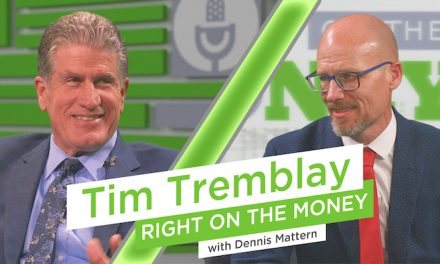Seven Core Values to Help Protect Your Money in Good & Bad Time
Solid core values are often time-tested attitudes about money or values incorporated from other successful investors. And if you’re really adventurous, you can toss out everything you’ve ever learned about money and start from scratch. But here are a few core values that you may want to add to your financial profile to fully form your psychonomics or attitudes towards money.
Overprotection – No Super Bowl champion wins without great defense. Portfolio performance is one thing, but fund preservation is quite another, and it’s a preferred attribute in money management. Hedging your portfolio is a calculated defensive position to take up.
Detailed Orientation – Not everyone is analytic, but the basic money mechanics are within the scope of most investors. Learning the ins and outs about money is so fundamental to financial success that, if you can’t figure it out, outsource the analytics to a detailed adviser.
Diligence – Many people in our ADD society have never been trained to be diligent. It’s a discipline of thoroughness that escapes the average investor. But it’s a mindset about money that can be changed through regular financial education. If the learning curve is too steep, find a diligent adviser.
Coachability – Many adults refuse to be told anything, even if it’s for their own good. Nevertheless, most investors need a mentor with a solid track record on money matters. If you’re approachable, you’re coachable! If you’re not, do you want to be? There are a few “tough love” advisers out there that are disciplinarians who know how to have your back.
Leadership – The vast majority of investors need guidance. But good guidance means transferable influence, in this case, about money. It’s how parents cultivate character in their children and become leaders of their own households. Good followers become good leaders. Good leaders become mentors. And, in this case, good money mentors.
Honesty – Shakespeare said, “To thine own self be true.” Facing reality is tough. Investors who undergo a risk tolerance test are often surprised to discover their psychonomic profile doesn’t reflect their portfolio holdings. Your financial profile and portfolio should agree.
Fearlessness – During market volatility, it’s difficult to be brave and stick to your plan. Turbulent times can either expose faulty thinking or confirm the right thought process. Fearlessness can be developed through knowing your money self and having a plan that reflects your financial goals, and sometimes a back-up plan as a pivot point towards another direction.
Contributions to this press release are directly from David’s newest book entitled, “Return on Principle: 7 Core Values to Help Protect Your Money in Good Times and Bad.” David has also authored the critically acclaimed book, “Stop The Financial Insanity, How to Keep Wall Street’s Cancer from Spreading to Your Portfolio.” David is not only a best selling author, but also a popular platform speaker and TV talk show host of the Income Generation. David’s credentials include CFP, CFA, MSFS, CLU & ChFC.
Syndicated financial columnist Steve Savant interviews top retirement specialists in their field of expertise. Right in the Money is a financial talk show distributed in daily video press releases to over 280 media outlets and social media networks.





